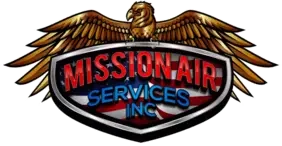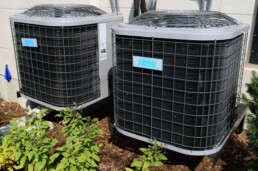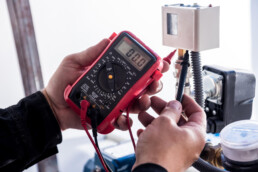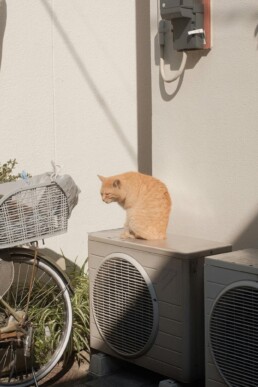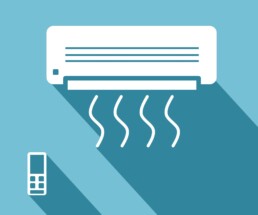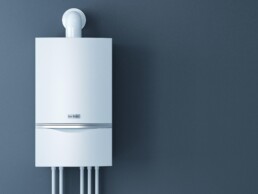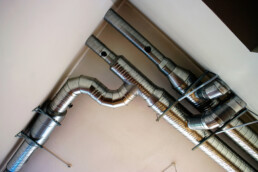How to Prepare Your Commercial HVAC System for Hurricane Season in Florida
If you own a business in Plant City, FL you're likely familiar with hurricane season. From June to November, you have to prepare for harsh weather. Not only does this impact business and foot traffic, but hurricanes can take a serious toll on your commercial equipment, especially your HVAC system.
The first concern is strong winds damaging your outdoor HVAC units. Next, is the issue of flooding; small businesses with basements and below-ground stockrooms understand this problem all too well.
Powerful winds cause power surges and sudden shut-offs which overworks and damages HVAC systems.
Learn how to prepare for an HVAC emergency.
Inspect Your Plant City, FL HVAC System
Your first step is to see if your commercial HVAC system is nearing its expiration date. With proper maintenance, your system should last up to 25 years. If you start noticing signs of trouble by this point, you're likely due for a replacement.
Watch for the following HVAC signs:
- Skyrocketing small business energy bills
- Obstructed or weak airflow
- A noticeable rise in humidity levels
- Strange (and prolonged) unit noises
- Pungent odors
- Long cooling cycles with minimal output
- Erratic cycles (going from short to long)
- Paying for frequent repairs
- Air quality problems
You can start by troubleshooting your thermostat.
A broken thermostat is unable to control your HVAC system. Plus, it will produce an inaccurate read. You can use a screwdriver to remove the faceplate to inspect the thermostat.
Book an Inspection For Hurricane Season Safety
Beyond thermostat issues, you should hire a commercial HVAC technician to inspect your equipment. You can always call a professional to inspect your system before a big storm to be on the safe side. Even a routine duct cleaning can make a difference and cut down on messy cleanup.
Your inspection should also include thoroughly checking HVAC wiring to prevent electrical fires during storms. A technician will check for any AC refrigerant leaks or gas leaks. If you suspect a gas leak, call a professional right away to avoid the risk of carbon monoxide poisoning during the storm.
A full system replacement is a larger project. Never take on an HVAC installation yourself; you'll risk electrical hazards with incorrect wiring, leaks, property damage, and high utility bills. You also need an accurate heating and cooling load calculation to find the right system.
A professional will match the right system to your commercial space. System parts will be correctly installed to prevent loose parts from damaging the HVAC units. New HVAC systems also make less noise which makes for a more pleasant workplace and customer experience.
Make sure to book a system replacement by spring so that it's ready by hurricane season.
Prepare HVAC System Units Outdoors
The condition of the area outside your commercial building is also important.
Take this time to assess the condition of any surrounding trees or plants. Hurricane winds can easily uproot ground plants and flower pots and send them flying toward your outdoor HVAC unit. These same winds can knock down trees, causing them to topple on top of equipment.
Call a tree trimming service or gardening business to inspect your yard and remove any potential hazards. Routine maintenance will clear away any debris that can clog or damage your outdoor unit.
Store any of the following items inside to prevent HVAC damage:
- Cafe tables and chairs
- Freestanding benches
- Table umbrellas
- Freestanding signs (and hanging signage)
- Magazine stands
- Outdoor clothing racks
- Bins and baskets
Next, buy sturdy tarps to place over your outdoor units. You may need to purchase some stakes and nail the tarp to the ground. You can find tarps with metal rings. Hurricane straps are also available.
Flooding around your commercial space is also likely. You'll need to elevate your outdoor units to avoid water damage. However, the platform needs to be sturdy enough to withstand powerful winds.
A heavy cement-based platform works. You can also buy cement blocks and stack them up. You could also hire a professional to build a cement foundation for your outdoor units.
Line the platform with plenty of sandbags for further protection. Consider building a gate around your HVAC units that can withstand powerful hurricane winds. These gates also protect your outdoor units from critters and other damage from pests.
Commercial HVAC Tips For Hurricanes
Make sure to close your business on the day of the hurricane. Communicate the closure to customers by leaving a message on your website, social media, and business voicemail. If you manage an office, send a mass SMS to employees reminding them to not come to work.
Turn off your HVAC's power supply while preparing your system to weather the hurricane. This tip will avoid costly power surges that can raise utility bills, cause electrical fires, and damage units. Many small business owners install surge protectors to be on the safe side.
More Ways to Prevent HVAC Emergencies
Inspect the exterior of your commercial space for any potential hazards that could damage your HVAC system.
For example, old roofing shingles are particularly vulnerable during hurricanes. Similar to commercial HVAC systems, you should see if your roof needs a replacement at the 20 to 25-year mark. You may want to install a more reliable metal commercial roof that can weather powerful winds.
Chipping and crumbling exterior materials can also clog HVAC units with debris. Make sure the exterior wall next to your outdoor unit is in good shape.
Next, ensure your windows are sealed tight and the glass isn't vulnerable to breaking during a storm. A reliable tarp should prevent any damage from broken glass. Check your window frames for potential repairs before a big storm; seal up any openings that can cause leaks or pest infestations.
Plan for an HVAC Emergency
Don't pay the high costs of HVAC storm damage. Follow this guide as you prepare your HVAC units, installation, wiring, interior, and outdoor surroundings. Make sure to call a professional if you have any concerns about HVAC safety.
Mission Air Services wants to help you prepare for any HVAC emergency. Learn why small business owners in Plant City, FL depend on our commercial HVAC services. Routine maintenance is key!
We're a team of HVAC professionals who care about creating comfortable spaces for customers and employees. Contact us to learn more or book an appointment today!
HVAC Energy Efficiency Tips During Hurricane Season in Florida
Lakeland, FL, known for its hot and humid climate, faces a unique challenge during hurricane season. From June to November, the combination of high temperatures and the threat of severe storms can put a significant strain on HVAC systems.
As a homeowner, ensuring your HVAC system is both energy-efficient and prepared for extreme weather conditions is crucial. Not only can this save you money on energy bills, but it can also ensure your home remains comfortable and safe during power outages and storm impacts.
Let's go through our top Lakeland energy-efficient HVAC system tips you need for hurricane season.
Pre-Season Maintenance
Pre-season maintenance is a crucial step in ensuring your HVAC system operates efficiently and reliably throughout the hurricane season in Lakeland, FL.
Dirty filters can obstruct airflow, forcing your HVAC system to have to eat up more energy to maintain the desired temperature. Regularly cleaning or replacing filters ensures optimal airflow, lowers your overall energy consumption, and extends the lifespan of your home's HVAC system.
It's advisable to check filters monthly and replace them at least every three months or as recommended by the manufacturer.
Weatherproofing
Weatherproofing your HVAC system should be high on your list of energy-saving HVAC tips.
One of the first steps in weatherproofing is sealing ducts and vents to prevent air leaks. Leaky ducts can cause a ton of energy loss as conditioned air escapes, causing your system to work harder to maintain the home temperature you want.
By using mastic sealant or metal tape to seal any gaps, you ensure that air flows efficiently through the ducts. That reduces energy waste and improves overall system performance.
Installing weather stripping around your Lakeland home's doors and windows is another effective weatherproofing measure. Drafts from badly sealed entrances and exits can cause the newly cool and conditioned air to escape and unconditioned air to enter.
That makes your HVAC system work harder to maintain a comfortable indoor temperature. Weather stripping helps prevent these drafts, keeping conditioned air inside and improving energy efficiency.
Weather stripping can protect your home from rain and wind-driven moisture, lowering the possibility of water damage during a hurricane.
Use Energy-Efficient Settings
Adjusting your thermostat settings can significantly impact energy usage. For instance, setting your home's thermostat to a higher temperature when you are not at home reduces the workload on your HVAC system. This simple adjustment can lead to a ton of energy savings without compromising comfort.
Consider investing in a good smart thermostat that allows you to automate these adjustments based on your schedule, ensuring optimal efficiency without constant manual intervention.
Ceiling fans are another effective tool for enhancing energy efficiency. When used in conjunction with your HVAC system, ceiling fans help circulate air, making rooms feel cooler and allowing you to set your thermostat a few degrees higher without sacrificing comfort.
Ensure that your ceiling fans are set to spin counterclockwise during the summer months, as this creates a cooling breeze by pushing air downwards. By reducing the reliance on your HVAC system to cool your home, you can lower energy consumption and extend the life of your equipment.
Take Post-Storm Action
Taking swift and thorough post-storm action is crucial to ensure the continued effectiveness and function of your HVAC system after a hurricane in Lakeland. The first step is to inspect your HVAC system for any visible damage or debris accumulation.
Hurricanes can leave behind a significant amount of debris, such as branches, leaves, and other materials, which can obstruct your outdoor unit. Clearing away this debris promptly helps maintain proper airflow and prevents potential damage to the system's components.
You need to check for any signs of physical damage to the HVAC system. Look for dents, cracks, or other visible issues that may have been caused by flying debris or strong winds. Pay particular attention to the outdoor unit's condenser coils and fins, as these are susceptible to damage.
If you notice any damage, it's important to contact a professional HVAC technician. Attempting to operate a damaged system can lead to further complications and reduced efficiency.
Monitor your HVAC system's performance closely in the days following a hurricane. Listen for unusual noises, such as rattling or hissing, which could indicate hidden damage or system malfunctions.
If your system is not cooling or heating as effectively as it did before the storm, this could also be a sign of underlying issues that need professional attention.
Get Professional Help With Hurricane Preparedness Plant City, FL
Don't be afraid to bring in the experts. Professional HVAC technicians bring expertise and experience that can be invaluable.
Scheduling regular Florida inspections and maintenance with a trusted professional before the hurricane season begins can help identify and address potential issues early. That prevents costly repairs and breakdowns during extreme weather conditions.
Lakeland maintenance technicians can perform a comprehensive assessment of your HVAC system. That includes checking refrigerant levels, inspecting and cleaning coils, and ensuring all the different parts are in good working condition. They can also catch any signs of damage that may not be visible to the untrained eye.
By addressing these problems, you can enhance your system's efficiency and reliability. That ensures it operates optimally when you need it most.
During the hurricane season, the risk of power surges and outages is high, and these can have a major impact on your Lakeland HVAC system's performance. Professionals can install surge protectors to safeguard your system's sensitive electronics, minimizing the risk of damage from sudden power fluctuations.
They can also recommend and install backup power solutions, such as generators, to keep your HVAC system running during extended power outages. That helps you maintain indoor comfort and prevent potential damage from extreme temperatures.
Use These Plant City Energy Efficient HVAC System Tips ASAP
With these energy-efficient HVAC system tips, you won't have to worry about your environmental impact this hurricane season.
Are you looking for Plant City, FL HVAC services? Mission Air Services believes that comfort is a necessity, no matter the season. We're dedicated to ensuring our customers have the temperature of their dreams.
Contact us today to get started.
Outdoor Air Conditioner Unit: What It Does and Ways To Maintain It Before Summer in Florida
You might not spend a lot of time thinking about your air conditioner outdoor unit, but it's actually an important part of your AC system.
How significant is it? Well, the air conditioner outdoor unit plays a pivotal role in your home's cooling system, impacting everything from air quality to energy efficiency.
Today, we're diving into what this unit does and how you can maintain it to ensure a cool, trouble-free summer in Florida.
Understanding the Air Conditioner Outdoor Unit
The air conditioner outdoor unit is a key component in your home's cooling system. This unit houses important parts like the compressor, condenser coil, and fan. These elements work together to release heat from your home into the outside air.
The process starts when the indoor unit absorbs heat from your indoor air. It then transfers this heat to the outdoor unit where it gets released.
There are several types of air conditioners, and each one has a different kind of outdoor unit. For example, split systems have an outdoor unit that works with one or more indoor units.
Central air conditioners also use a single outdoor unit that connects to a system of ducts. These distribute the cooled air throughout your home.
Heat pumps, another type of system, have an outdoor unit that can both cool your home in the summer and provide heat during cooler months.
Each type of system uses its outdoor unit differently, but all are essential for effective cooling. No matter the type, the outdoor unit's ability to function properly affects your air conditioner's efficiency.
The Significance of Regular AC Maintenance
Regular maintenance of your air conditioner's outdoor unit is key to keeping your system running smoothly. It helps prevent breakdowns and helps your unit operate more efficiently.
This means it uses less energy to cool your home, which can lead to lower electricity bills. Regular checks and upkeep also extend the life of your air conditioner, so you won't have to replace it as soon.
Ignoring routine maintenance can lead to a range of problems. For example, if the outdoor unit's coils are dirty, the system has to work harder to expel heat.
This extra strain can cause the compressor to overheat and eventually fail. Such failures are not only inconvenient but can also be expensive to fix.
A poorly maintained air conditioner may not cool your home evenly or effectively. This can make some rooms uncomfortably warm.
Pre-Season Tune-Up
A pre-season tune-up is essential for ensuring your air conditioner is in top shape for the summer heat, especially in places like Lakeland, FL, where temperatures soar. This type of maintenance involves a thorough check of your system's outdoor unit, including cleaning, inspecting, and servicing all its parts.
Starting with the basics, it's important to clear any debris that has gathered around the outdoor unit. Leaves, dirt, and grass clippings can block the airflow and reduce your system's efficiency.
You should also check for any visible signs of wear or damage, such as frayed wires or insulation. These issues can lead to bigger problems if they're not addressed early. Next, the cooling fins on the outdoor unit need attention.
These fins can easily get bent and should be straightened because they help transfer heat out of your home. It's also vital to check the coolant levels.
Low coolant is a sign of leaks or other system issues. It can drastically affect your air conditioner's ability to cool your home.
Finally, it's a good practice to test the system's controls and thermostat to make sure they are working correctly. This ensures that your air conditioner turns on and off as it should and maintains the desired temperature in your home.
While some homeowners might feel comfortable performing these checks themselves, others might prefer to call in a professional. This is especially true if it's been a while since the last maintenance check or if any part of the process seems unclear.
Professional HVAC technicians can provide a more thorough service, including checking the electrical components and recharging the coolant if necessary.
Professional AC Maintenance Services
When your air conditioner starts making unusual noises, fails to cool certain areas of your home, or your energy bills unexpectedly spike, it's time to call in a professional. These signs can indicate more serious issues that require expert attention.
A professional technician can perform a more comprehensive evaluation and repair of your air conditioner's outdoor unit.
Choosing the right service provider is important. You want someone who is reliable and has a good track record. Start by asking friends or family for recommendations. You can also check online reviews to see what other customers say about the service they received.
Look for technicians who are certified and trained to handle the specific type of air conditioner you own. This ensures they have the skills needed to diagnose and fix any problems correctly.
A professional service typically includes a detailed inspection of your system. The technician will check the electrical connections, ensure the thermostat is properly calibrated, and verify that the refrigerant levels are optimal. They'll also clean the coils and other components more thoroughly than basic homeowner maintenance could achieve.
By having a professional service your air conditioner, you ensure that any potential issues are addressed before they become major problems. This not only helps in extending the life of your unit but also keeps it running efficiently.
This can save you money on cooling costs over the summer. Such a proactive approach is especially crucial in a warm climate like Lakeland, FL, where air conditioning is essential for comfort during the hot months.
Keep Cool and Carry On
As summer approaches, remember the importance of your air conditioner outdoor unit. Proper understanding and maintenance ensure it runs efficiently, keeping you cool and comfortable. Take action now to prepare your unit for the heat, ensuring a reliable and effective performance throughout the season.
At Mission Air Services, we're not just your average HVAC company. We're your partners in creating the perfect indoor haven. Think of us as the architects of coziness, the conductors of coolness, and the custodians of clean air. Get in touch today to find out how we can keep you cool this summer!
What Does AC Maintenance Include and Do I Need It Now
Florida State has the second highest humidity levels in the U.S. only after Alaska. Even if you don't mind heat, humidity is an entirely different beast.
The hot, humid climate of Florida leads to many homes in the state having air conditioners. However, having an AC isn't enough. You need to maintain it to receive the full perks of cool air on a hot day.
A professional AC contractor can take a look at your HVAC system components to determine what's needed. Keep reading to learn about AC maintenance and why it's necessary.
What Does AC Maintenance Include?
Regular AC maintenance involves a set of tasks performed by a professional. While the specifics may vary depending on your system and its needs, these are the most common tasks you can count on:
Air Filter Replacement
AC companies will always stress the importance of regular air filter cleaning or replacement. Over time, air filters will collect dirt and debris that can clog up and reduce your system's efficiency.
Clean filters ensure that your air can flow through the system and into the home without stress. Some filters are washable so you don't have to replace them as often. A good clean will suffice.
It's recommended to change your air filter about every three months. If you have pets or live in a dry climate, you might need to change the filters more.
Failure to change the filters can increase your AC bills and cause health issues. An HVAC technician in Lakeland, Florida can complete this for you during an AC checkup. It's also one of the easier tasks you can do yourself when needed.
Condenser Coil Check
HVAC system components like condenser coils can collect dirt and debris over time. Just like with AC filters, the more dirt there is, the harder the system has to work.
Coils play a large role in cooling the air. Keeping them clean will ensure your system stays healthy for longer. You'll know it's time for a clean if you experience these tell-tale signs:
- Reduced cooling
- Longer cooling cycles
- Odd noises
- Higher energy bills
- Formation of ice
Additionally, your indoor humidity may be higher and your indoor air quality lower. A professional will clean the coils to make sure your unit continues to run as it should.
Refrigerant Level Inspection
During your AC maintenance checkup, a technician can inspect the refrigeration levels. If necessary, they'll add more.
Refrigerants should stay at adequate levels to keep comfortable temperatures in the home. The refrigerant is responsible for taking heat from the outdoors and cooling it to release into the home. If you experience an air conditioner leaking/AC pan leaking, it might be due to low refrigerant levels.
Running the AC without enough refrigerant can damage the system and won't cool your home. Your electric bill will increase and you won't get the cooling you desire.
Lubricate HVAC System Components
There are various moving parts in an HVAC system. Over time, these parts become worn and reduce the efficiency of your system.
A maintenance technician can lubricate the different parts to decrease friction. Your system will be able to move smoothly.
There are some signs that you need to lubricate your AC's moving parts. If you smell a burning odor, hear humming noises, or have overall inefficient cooling, call your AC technician.
Some of the signs of needing lubricant are the same symptoms as other problems. A professional can get to the bottom of the issue and fix it with ease and expertise.
AC Cleaning
When you look into heating and cooling near me, you'll find that many companies offer cleaning. This is a maintenance requirement if you wish for your system to have longevity. Cleaning an AC involves the removal of dirt and debris from various components.
To clean efficiently, a technician will turn off the power supply to the AC, remove debris that has accumulated near or on the unit, and spray the AC with a hose. They will also follow the above checklist to ensure your AC is as good as new. After, they can test the unit to ensure it works correctly.
AC Repair
There is no need to look up "AC repair near me" if you already have a maintenance technician. These professionals not only clean and maintain your system, but they can repair it when needed.
During your tune-up, they might find an issue that you weren't aware of. A professional set of eyes is helpful. They can fix an issue before it becomes a costly replacement job.
This is just another reason why it's important to hire a professional to handle maintenance.
Do You Need AC Maintenance Now?
If you haven't completed the above tasks in a while, you might need AC maintenance now. HVAC pros often recommend annual AC maintenance.
However, the frequency of AC maintenance can depend on:
- System age
- AC usage
- Type of unit
- Manufacturer recommendations
You'll want to schedule a tune-up before summer to ensure your system works well before the heat hits. Regular inspections can help determine if you need more frequent maintenance for your type of system. When you hire a professional technician in Lakeland, Florida, they will conduct preventative maintenance to keep the AC in good condition.
Without active maintenance, your system may fail sooner than it should, costing you a lot more money in the long run. Licensed HVAC professionals work to ensure the optimal performance of your AC unit.
Take Care of Your HVAC System Components
Regular AC maintenance allows homeowners to protect their HVAC system components year-round. Mission Air Services in Lakeland, Florida can help prevent breakdowns with comprehensive maintenance plans.
Our Membership Club includes regular HVAC system checkups, discounts on maintenance and repairs, and priority service scheduling. We offer all of this to help homeowners experience elevated comfort.
Our highly skilled technicians are ready to take on your needs. With a wide range of services and an eye for detail, we are the optimal choice for Lakeland homeowners.
Contact the masters of making you feel at home now.
The Benefits of Timely AC Repairs for Lakeland, FL Homes as Spring Approaches
When was the last time you requested AC services in Lakeland, Florida? Over 40% of homeowners say they call professionals to perform routine HVAC maintenance. Air conditioning units that receive attention from technicians can last up to 40% longer.
What are the benefits of timely AC repairs for Lakeland, FL homes as spring approaches? Read on to find out! After discovering the benefits, you can determine if it's time to schedule a check-up!
Improved Energy Efficiency
Summer is a great time to take a break from work, go on vacation, or spend time with family at home. You may struggle to enjoy summer break if your AC unit is lagging. You'll waste money on your inefficient air conditioner instead of on summer fun.
Without routine maintenance, your AC maintenance's essential components will experience wear and tear. The unit may work twice as hard to function. This will increase the likelihood of the unit breaking down.
As it pushes itself, the unit will use more energy. Your energy bills may start to rise.
Spring AC maintenance can help you avoid costly energy expenses in the summer. An experienced technician can perform a professional AC tune-up. They can:
- Change clogged air filters
- Check the thermostat
- Clean the coils
These tasks will reduce how much energy your AC will need to function. It will have an easier time cooling your home.
Routine maintenance can help you avoid replacing the entire unit later. Instead, you can resolve small, inexpensive problems. Maintenance will save you money on labor, repairs, and parts.
Upgrading for Efficiency
The average lifespan of an AC unit is about 15 to 20 years. An old unit will struggle to work efficiently. Talk to your Lakeland HVAC technician about upgrading.
The most efficient AC units use as much as 50% less energy than units made in the mid-1970s. Even replacing a 10-year-old unit will save you up to 40% on cooling energy costs. Your technician can recommend a newer, more efficient model.
Newer models can ensure better indoor air quality. When the unit runs efficiently, it will remove toxins from the air before they circulate through your home.
An ENERGY STAR-rated unit will reduce your energy consumption. You may even receive a tax credit. Maintain your warranty by requesting routine HVAC maintenance.
These units are smarter and more precise. You can monitor your energy usage trends and eliminate hot spots. A new unit can save you money by operating more efficiently.
Better Air Conditioning Unit Performance
Does your AC unit break down, produce hot air, or require servicing every few months? Annual HVAC maintenance can improve the unit's reliability. You'll need fewer repairs in the long run.
During a routine maintenance check, a technician can:
- Clean the coils
- Replace dirty air filters
- Check refrigerant levels
- Lubricate moving parts
These tasks will ensure the unit runs smoothly. You can reduce the chances of the unit breaking down in the middle of summer.
Routine maintenance allows a professional to fully assess your unit. They can recognize minor problems before you require more expensive repairs. Taking these measures will ensure the unit's reliability and minimize surprises.
Longer Unit Lifespan
Routine maintenance can extend the lifespan of your AC unit. Otherwise, components will break down faster than expected. You may need to schedule repairs more often.
Maintenance will ensure the unit is running as expected. You can make smaller repairs to decrease the likelihood of premature failure.
Work with an experienced HVAC contractor. They can offer recommendations to improve your unit's functionality. Leveraging their expertise will keep your unit running for years to come.
Otherwise, you may need to replace your HVAC unit more often than necessary. The unit should last for 15 to 20 years. Neglecting maintenance can shorten this lifespan.
Your unit may break down faster due to:
- Dirty filters
- Frequent cycling
- Blocked vents
- Dirty air ducts
- Plants or debris on the exterior unit
You can remedy these problems by scheduling routine AC cleaning and maintenance.
Better Indoor Air Quality
If you neglect your AC unit, the air filter can get clogged. The unit will use twice as much energy to push air through the filter. Its energy efficiency will decline.
Pollen, dust, and other pollutants will stay within the system. They can accumulate and cause Florida cooling systems to malfunction.
As your family breathes in the polluted air, you may experience respiratory problems. Before that happens, schedule AC cleaning and maintenance.
An experienced AC technician can improve your home's air quality. They may recommend that you purchase an air purifier or use a better air filter. Air filters with a higher MERV rating are more effective at collecting smaller particles.
Talk to your technician about improving your home's humidity levels. Otherwise, excess humidity can cause mold to form. Mold spores may pollute the air and compromise your family's health.
If the air in your home feels sticky or thick, the unit isn't maintaining proper humidity levels. Consult a technician before mold or mildew grows as temperatures rise.
Avoid Busy Season
As we roll into summer, more Lakeland residents will rely on their AC units to keep cool. Pushing your unit may cause it to break down. Unfortunately, you may struggle to receive immediate help during the busy summer season.
Instead, schedule preventative maintenance during the spring. You can ensure your unit is functioning properly before summer break.
You won't have to worry about the unit breaking down when guests are about to arrive. Instead, you'll have peace of mind and the chance to enjoy your summer.
The Benefits of Timely AC Repairs for Plant City, FL Homes as Spring Approaches
Don't wait until your AC unit breaks down. Instead, experience the benefits of timely AC repairs for Lakeland, FL homes as spring approaches. Request AC services in Lakeland, Florida to maintain your unit.
Look no further for HVAC maintenance services! At Mission Air Services, we offer 24/7 emergency services to bring a breath of fresh air to your life (literally). We'll keep your indoor environment comfortable year-round.
Rely on our expertise to create the perfect atmosphere for your home. Contact us today to request air conditioning repair services.
Hiring an HVAC Company to Improve Indoor Air Quality in Plant City, FL
Did you know Americans spend about 90% of their time indoors on average? Unfortunately, home is where the pollutants are. Concentrations of pollutants are two to five times higher inside than outside.
Improving your home's indoor air quality can protect you, your family, and your wallet. Not sure if you need to request HVAC services in Plant City, FL? Read on to discover the benefits of improving your indoor air quality in Lakeland first!
What Is Indoor Air Quality?
Your home's air quality is a measure of how clean the air is based on the concentration of:
- Dust
- Mold spores
- Pollen
- Volatile organic compounds (VOCs)
- Carbon monoxide
High concentrations of these pollutants can trigger asthma symptoms and allergies. You may experience fatigue, dizziness, and headaches.
Improving your home's air quality will help you feel more comfortable in your own home. You'll have peace of mind knowing your family is safe from harmful pollutants.
Poor Indoor Air Quality in Plant City, FL
The best HVAC companies in Florida can help you recognize signs that the air quality in your home is poor. For example, you may experience symptoms like:
- Headaches
- Nausea
- Eye irritation
- Throat irritation
- Allergies
Allergies are now the sixth top cause of chronic illness in America. You shouldn't have to worry about allergies within your own home.
Poor air quality can worsen existing conditions, including asthma. If you're living or working in a poorly ventilated building, you may experience severe symptoms.
Let your Plant City, FL HVAC company know if you notice:
- Increased humidity
- Dust particles
- Visible mold
- Stuffy air
- Odors
These signs of poor air quality indicate it's time to take action. Improving the air quality will benefit your comfort and health.
Causes
The most common contributors to poor air quality include:
- Smoke from candles or fireplaces
- VOCs from paint or furniture
- Cleaning chemicals
- Pet dander
- Dust
- Pollen
- Bacterial and fungal growth due to water damage
- Radon gas
- Cabron monoxide from furnaces
These pollutants can build up within your home over time. They'll build up faster if there's insufficient ventilation or air filtration within your home.
Benefits of Hiring a Plant City, FL HVAC Company
An experienced Lakeland HVAC company can evaluate your home's air quality. Their services can clear the air, providing you with a more comfortable place to live. Here are a few benefits you'll experience after improving your indoor air quality.
Breathe Easier
The more contaminated the air is, the more quickly you can succumb to allergy symptoms or chronic illnesses. Even a small amount of pollutants in the air can increase your stress levels. Excessive stress can increase your risk of diabetes, heart disease, and other chronic conditions.
With HVAC services in Lakeland, you can clear the air and breathe easily. You'll create a safer environment for yourself and anyone who visits.
Sleep Better
Adults need seven to nine hours of sleep every night to function during the day. Cleaner air can make it easier for you to get the rest you need. Your risk of getting sick, which can inhibit your ability to rest, will decrease.
Getting more sleep can reduce stress levels. Your mental and physical health will improve.
Remove Allergens
Many people develop inhalant allergies; a sign from our bodies that we can't tolerate something. The more you're exposed to allergens, the more likely you'll become sick.
Cleaning the air will make it easier for your body to recover. You can also save money on allergy medications.
Reduced Risk
Airborne contaminants can compromise your heart health. There's a connection between air pollution and cardiovascular disease.
Improving your home's air quality can limit your exposure to pollutants. This could reduce your risk of developing heart-related diseases.
Better Workouts
Do you love working out at home? Proper air quality is crucial. Better air quality promotes better athletic performance.
When you run or bike using home exercise equipment, you require higher oxygen levels than normal. Otherwise, you won't get the most out of your workout. Improving your home's air quality can make working out easier.
Anti-Aging
Exposure to toxins can cause your body to age faster due to resulting chemical reactions. Improving your indoor air quality can help your skin remain elastic and firm. Otherwise, wrinkles can develop.
Cognitive Health
Your brain relies on oxygen to function. When you inhale air that's full of contaminants, it could negatively affect the brain. Long-term exposure can cause cognitive decline.
Eliminate Odors
Improving the air quality will make it more difficult for mold to bloom or for germs to spread. Mold and germs can cause odors to develop within your home. A good air filtration system can eliminate odors.
Improved Quality of Life
Improving the air quality within your home can improve your quality of life. Your stress levels will decline, benefitting your mood and physical health.
Improve Your Air Quality
Request HVAC services in Lakeland if you've experienced the above symptoms. Your HVAC contractor will use proven strategies to clear the air within your home.
Make sure to regularly change or clean your HVAC filter. Cleaning the filter can remove dust, dirt, and particles before they circulate within your home.
You can install a ventilation system to draw fresh air into the home. The system will also send pollutants out. Your HVAC technician will check your home's ductwork for leaks.
Otherwise, you can install an air purifier. A purifier can trap harmful agents like VOCs, mold spores, and bacteria before they circulate. These systems can filter out 99% of common airborne pollutants.
After working with your Lakeland HVAC company, develop a regular cleaning routine. Use natural cleaners to keep VOCs out of the air.
Try keeping your home's humidity levels below 50%. For humid areas in Florida, consider using a dehumidifier.
Contact Missions Air Services for Indoor Air Quality Services in Plant City, FL Today
Don't let poor indoor air quality affect your health and happiness. Instead, consult your Plant City, FL HVAC company. Their professional services will help clear the air, making your home a more comfortable place to live.
Don't waste time researching HVAC companies in Florida. Mission Air Services can transform your indoor environment into a paradise. Our mission is to bring a breath of fresh air to your life, literally.
We're family-owned, offer 24/7 support, and have a passion for turning homes into havens. Contact us today to request our indoor air quality services.
What Is the Most Energy-Efficient Way to Heat a Home in Florida?
Although Florida boasts warm weather most of the year, you want to cozy up your Lakeland home during those occasional chilly days. With over 90% of Floridians relying on electric heat in 2022, you might be on the lookout for energy-efficient ways to keep warm and cozy.
Not only will the most energy efficient HVAC system keep your Florida home toasty, but it can also cut your heating bills. Plus, you'll be doing your part for the environment!
Join us as we explore diverse options and find the perfect fit for your needs and budget.
What Types of Heaters Are Available for Your Florida Home?
Knowing your options is the first step in finding the most energy efficient heating solution for your home. You've got various choices, each with unique benefits and drawbacks. Understanding these is crucial for making the right decision.
1. Natural Gas Heaters
These are a popular choice for heating Florida homes, especially for those who prefer a quick and powerful heating solution. Natural gas heaters are known for their efficiency and can be more cost-effective than electric heaters, depending on local gas prices. They're reliable and can heat a house quickly. This makes them a practical choice for those occasional chilly evenings in Lakeland.
On the downside, the initial setup for a natural gas heating system can be higher than for electric heaters, especially if your home isn't already connected to a natural gas line. This might include the cost of the heater itself, installation, and any necessary ductwork.
Additionally, natural gas heaters require regular maintenance to ensure they are operating safely and efficiently. Burning natural gas can negatively impact indoor air quality if the heater is not well-maintained or properly vented. This could lead to a buildup of pollutants inside your home.
There's also a risk of gas leaks, which can be hazardous. It's important to have detectors installed and to ensure regular service by professionals.
2. Electric Heaters
Electric heaters are suitable for homes without access to natural gas or for those who require supplemental heating in specific areas.
They're versatile and come in various types, including baseboard heaters, portable heaters, and wall heaters.
The upfront cost of purchasing an electric heater is generally lower compared to other types of heating systems like gas heaters or heat pumps. Plus, electric heaters generally require minimal installation efforts, as they don't need a dedicated gas line like their gas counterparts. This can save you money on installation costs.
Many electric heaters are portable, allowing you to move them from room to room as needed. This flexibility is great for heating specific areas of your home without the need to warm the entire space. This can result in further financial savings.
While electric heaters may be cheaper to buy and install, they can be more expensive to operate. Electricity costs more per unit of heat than natural gas in many areas. This can lead to higher energy bills.
3. Heat Pumps
Particularly well-suited to Florida's mild winters, heat pumps are among the most energy-efficient heating systems available. They work by transferring heat from the outside air to warm your home, consuming less energy compared to traditional heating methods.
Compared to electric resistance alternatives, such as baseboard heaters and electric furnaces, heat pumps can cut your electricity usage for heating by about 65%. Plus, they double as air conditioners in the summer. This makes them a versatile, year-round solution for Lakeland residents like yourself.
Besides their energy efficiency and dual functionality, heat pumps are generally safer than combustion-based heating systems, as there's no risk of carbon monoxide poisoning or gas leaks.
A major disadvantage of heat pumps is that their initial installation cost can be higher than traditional heating systems. This upfront investment might be a deterrent for some homeowners, although the long-term energy savings can offset this.
Also, the efficiency of these heating systems can decrease in extremely cold temperatures. This can make them less suitable for Lakelanders that experience harsher winters.
How Can You Enhance the Energy Efficiency of Your Florida Home Heater?
Regardless of what type of heater you choose, there are ways to make it run at peak efficiency. Regular maintenance and smart usage habits can significantly improve your heater's performance and reduce energy costs. Consider these tips to keep your home toasty and your wallet happy:
1. Regular Maintenance
Keep your heating system in top shape with regular maintenance. This includes cleaning or replacing filters, checking for duct problems, and having a professional service your system annually.
2. Smart Thermostats
Installing a smart thermostat can significantly improve your heating system's efficiency. These devices allow for precise temperature control and can be programmed to lower the heat when you're not home, reducing unnecessary energy use.
3. Insulation and Sealing
Drafty windows and doors are energy bandits. Proper insulation in your home, along with sealing any gaps around doors and windows, can keep the heat in and the cold out. This reduces the burden on your heating system and keeps your home comfortable.
4. System Sizing
Each home is unique, and so are your heating needs. Think about your home's size, layout, and how often you need heating. This will guide you in choosing the most appropriate type of heater and using it efficiently.
5. System Upgrades
If your current home heating system is old and inefficient, consider upgrading to an energy-efficient model. A small investment now can mean big savings in the long run.
Get the Most Energy Efficient HVAC System in Plant City, FL
Whether it's the quick warmth of natural gas heaters, the simplicity of electric heaters, or the efficiency of heat pumps, there's a heating solution that's right for you. With a few smart practices, you can enhance the energy efficiency of your residential heating system, ensuring cozy winters without hefty energy bills.
At Mission Air Services, we can leverage our expertise and experience in HVAC systems to help find the most energy efficient HVAC system for your Lakeland home. Don't hesitate to get in touch with us today to learn more about your home heating options.
Common Duct Problems and How to Fix Them
A staggering 1,081 kWh per month - that's how much electricity the average home in Florida uses. That's nearly 20% higher than the nationwide average! And if you're in Lakewood, FL, you likely pay ¢10.58 per kWh.
While that's less than the U.S. average, it still translates to nearly $115 a month, or $1,380 a year.
Your HVAC system, in turn, is the top driver behind that high electricity usage.
Unfortunately, air duct problems can further increase your energy bills. Worse, they can cause poor indoor air quality (IAQ).
Fortunately, minor problems with ductwork are fixable with DIY strategies. You only need to be proactive in finding and addressing them.
We'll give you a head start by teaching you the most common HVAC ductwork woes and how to fix them, so read on.
Duct Leaks
Duct leaks occur when conditioned air escapes the ductwork. This leakage often happens via gaps, cracks, seams, and holes in the metal ducts. As a result, the conditioned air goes to waste rather than cooling or heating a room or space.
The Symptoms
Duct leaks can cause hot and cold spots throughout your abode. They can also lead to your home having stuffy areas. And because they waste conditioned air, they can raise your heating and cooling bills.
Leaky ducts also place unnecessary strain on your HVAC system. For example, if they leak 20% of conditioned air, they can force the HVAC system to work 50% harder. This can result in your system experiencing premature breakdowns and frequent repairs.
The Fix
First, find possible leaks, which often occur around ductwork connections and joints. Loose joints, holes, and tears in duct insulation can all leak conditioned air. Unsealed joints likely experience some leakage, too.
Once you've discovered these problem areas, the next step is to patch and seal them. For small holes and tears, you can use high-quality HVAC tape. You can also use duct sealant, a thick, paint-like substance you can buy from hardware stores.
However, if you have extensive duct leakage, your best bet is to contact an air duct repair expert. Do the same if you can't find the leaks but experience their symptoms. Pros can quickly locate and fix leaks using the latest HVAC technology and equipment.
Damaged Duct Insulation
Poorly insulated ducts can result in duct leakage, too. Therefore, they also contribute to higher heating and cooling bills. These, plus other duct leaks, can make your HVAC bills cost hundreds of dollars more each year.
Damaged insulation, which can be holes, tears, or water saturation, has a similar effect.
The Symptoms
Damaged duct insulation can cause the same symptoms as duct leaks. However, they can also become wet, which can happen due to high humidity levels.
Excessive condensation can also lead to wet insulation. You may first see this as water droplets on uninsulated duct sections. From there, the droplets can drip into the areas with insulation, saturating them.
You may also notice missing sections in your duct insulation. This indicates a potential rodent infestation.
Mice and rats can make nests out of insulation materials. So, if you also hear odd sounds (e.g., squeaking or scratching) from your ducts, they may be a sign you have pests in there.
The Fix
As with minor duct leaks, you can use HVAC tape or sealant to fix small holes and tears on duct insulation.
However, if the insulation is wet, it may already require replacement. In this case, consider contacting a licensed HVAC professional in Plant City, FL. This way, they can determine and fix the root cause of the excessive condensation.
If you suspect rodents live in your ducts, please call a pest control company ASAP. Then, have an HVAC company clean and sanitize your ducts.
Mold Growth
Moisture is one of the most crucial factors that promote mold growth.
As mentioned above, moisture can affect your ductwork and insulation through condensation. When mold spores land on them, it won't take long for them to colonize.
The Symptoms
The most telling sign of molds in ducts or insulation is an unpleasant, earthy, or musty odor. You may notice this when you breathe in conditioned air.
Health symptoms like nasal congestion, coughing, and sneezing may also occur. Mold exposure can also trigger eye and skin irritation, allergies, and asthma. Folks with mold allergies (about 10% of people in the U.S.) are particularly at risk of these symptoms.
The Fix
Cleaning your air ducts is the best way to remove molds growing inside these conduits. You can hire a local HVAC technician to perform this job and even sanitize your ducts. Sanitizing is especially helpful as it can kill molds and their spores.
For moldy duct insulation, the best move is to get it replaced by an HVAC professional.
Significant Dirt and Debris Build-Up
Over time, the ductwork in your home can accumulate particles. These include dander, dust, dirt, debris, mold spores, and pollen.
Those particles can enter your ducts through the air your HVAC system circulates. Air filters help trap some of them, but not all, depending on their MERV rating or efficiency.
The Symptoms
Particle build-up can cause similar symptoms as moldy ducts or insulation. Another indication is that your air filters keep developing clogs faster. Weak airflow from your HVAC system also signals filthy ductwork.
The Fix
As with moldy ducts or insulation, the best way to address filthy ductwork is to have it cleaned by a pro.
However, you should also consider scheduling your entire HVAC system for maintenance. Its interior components may have also formed thick layers of debris and residue. Having it inspected and tuned up can help make it perform well and efficient again.
Resolve Your Duct Problems ASAP
From leaks to damages, mold growth, and filth build-up, all these are common air duct problems. Fortunately, they don't always require costly repairs, provided you address them immediately. Doing so prevents them from causing more severe ductwork issues or HVAC failure.
Most importantly, having clean, working ducts can help keep your IAQ optimal.
If you still need help after trying the DIY tips above, Mission Air Services can help. Our expert technicians in Plant City, FL, can resolve all your HVAC and air duct woes 24/7. Contact us today to schedule your service!
